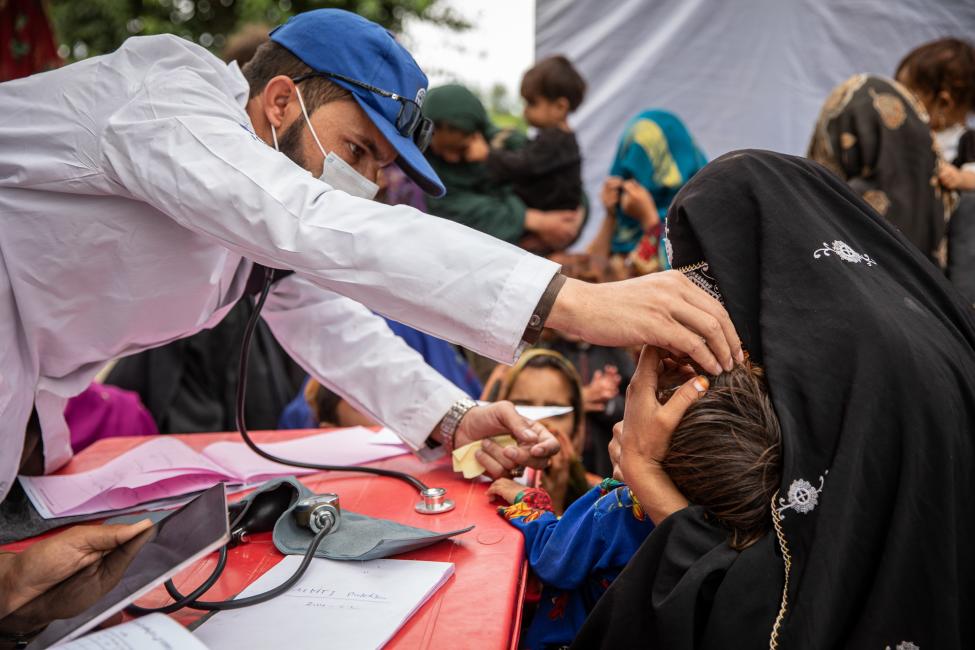At least 24 million people in Afghanistan are in need of humanitarian relief, out of which 22.1 million people require health assistance.
Qatar is stepping up its efforts to provide Afghanistan with much-needed medical services under a new agreement inked with the World Health Organization (WHO) on Tuesday.
Signed between the Qatar Fund for Development (QFFD) and WHO, the agreement aims “to support the provision of essential health services in underserved areas” across 11 provinces in Afghanistan.
“Complementing ongoing efforts, QFFD is working with different partners to improve the livelihood of developing and disaster-stricken and conflicts driven areas worldwide. We look forward to achieving tangible achievements and improving the livelihood of the Afghan people,” Mr. Khalifa bin Jassim Al-Kuwari, QFFD’s Director General, said.
According to WHO’s statement, the two entities will provide “pre-qualified medicine for primary health care” while facilitating the distribution process to health facilities. The medicine is used for the prevention and treatment of several diseases.
The diseases include ones related to sexual and reproductive health, maternal, newborn, and child mortality.
“WHO has been supporting the health needs of Afghans, including provision of medicines and medical supplies to the health facilities”, Dr. Luo Dapeng, WHO Representative in Afghanistan, said.
Health professionals will also receive training on the management of the medical supply chain as well as use of the medication, which will be distributed in Helmand, Daikundi, Ghor, Farah, Samangan, Zabul, Takhar, Baghlan, Maidan Wardak, Paktika, and Nuristan.
“Enhancing the provision of essential medicines in the underserved areas in Afghanistan is an opportunity to reduce preventable deaths among women, children, and adolescents and significantly improve their health and well-being,” Dr Alaa AbouZeid, Health Emergencies Team Lead at WHO Afghanistan, said.
Qatar has continued its efforts to provide much-needed humanitarian assistance to Afghanistan while urging the international community to commit to helping Afghans on the ground.
Decades of conflict and drought in Afghanistan have caused a major humanitarian crisis in the country. The conflict has internally displaced 3.5 million people and created 2.3 million refugees and asylum seekers, per UN figures.
At least 24 million people in Afghanistan are in need of humanitarian relief, out of which 22.1 million people require health assistance.
In January, WHO warned that Afghanistan’s health sector was on the brink of collapse with donors struggling to provide funding under the new Taliban rule.
“Previously funded by the World Bank, the European Commission, and USAID, there are now serious challenges to continuing these vital primary health care services,” WHO said at the time, saying that the population is under “serious” threat.







